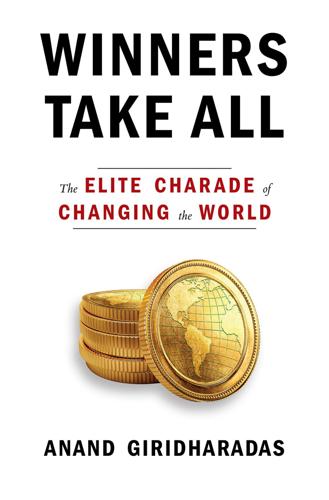
Winners Take All: The Elite Charade of Changing the World
by
Anand Giridharadas
Published 27 Aug 2018
What these various figures have in common is that they are grappling with certain powerful myths—the myths that have fostered an age of extraordinary power concentration; that have allowed the elite’s private, partial, and self-preservational deeds to pass for real change; that have let many decent winners convince themselves, and much of the world, that their plan to “do well by doing good” is an adequate answer to an age of exclusion; that put a gloss of selflessness on the protection of one’s privileges; and that cast more meaningful change as wide-eyed, radical, and vague. It is my hope in writing what follows to reveal these myths to be exactly that. Much of what appears to be reform in our time is in fact the defense of stasis.
…
Students have also been influenced by the business world’s commandment, disseminated through advertisements and TED talks and books by so-called thought leaders, to do whatever you do “at scale,” which is where the “millions of people” thing came from. It is an era, moreover, that has relentlessly told young people that they can “do well by doing good.” Thus when Cohen and her friends sought to make a difference, their approaches were less about what they wanted to take down or challenge and more about the ventures they wanted to start up, she said. Many of them believed there was more power in building up what was good than in challenging what was bad.
…
Under the terms of a new financial instrument called a “social impact bond,” it would profit if its investee, a prison education program, dramatically cut the recidivism rate. Despite such efforts to win over people of Cohen’s bent, a summer at Goldman revealed it to be not for her. It was a little far toward the “doing well” end of the “doing well by doing good” continuum. A more moderate choice, she felt, was McKinsey & Company. She liked the idea of going to a boot camp for solving problems at scale, which is how the campus recruiters framed it. The overwhelming share of McKinsey clients are corporate, but the recruiters, knowing the mentality of young people like her, played up the social- and public-sector projects.
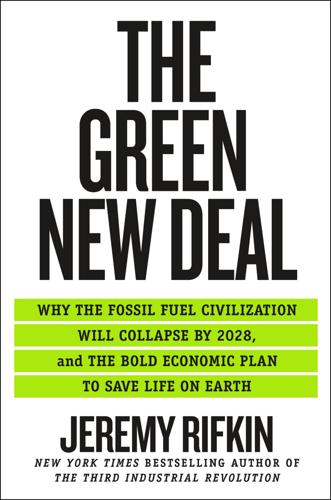
The Green New Deal: Why the Fossil Fuel Civilization Will Collapse by 2028, and the Bold Economic Plan to Save Life on Earth
by
Jeremy Rifkin
Published 9 Sep 2019
Under the surface, however, younger generations of baby boomers, Generation Xers, and millennials pushed for measuring investments by their environmental, social, and governance practices (ESG) in shareholder battles and in the administration of workers’ pension fund investments. A new phrase entered into the public dialogue around economic investments: “doing well by doing good,” a line borrowed from Benjamin Franklin. The idea was that there need not be, nor should there be, a sharp division between morally and socially good business practices and the bottom line. Rather, it was argued that this was a false dichotomy—that in reality, doing well by doing good enhances the bottom line. With this counternarrative, unions and NGOs continued to put forth shareholder resolutions at companies’ annual meetings to factor SRI into their practices.
…
The new thrust has given rise to “impact investing,” providing seed money to businesses that embed ESG into every aspect of their operations. In surveys conducted across the asset market sector, Morgan Stanley repeatedly heard from interviewees who expressed their strong conviction that the very nature of investment decisions is at an inflection point in the industry due to a shift in the kind of investments clients demand. “Doing well by doing good” has become the new mantra. Is the enthusiasm justified? A spate of in-depth studies over the past two years, including studies prepared by Harvard University, the University of Rotterdam, and Arabesque Partners and Oxford University, show that companies with a strong ESG presence across their value chains tend to outperform their competitors, in part due to their commitment to greater aggregate efficiencies, less waste, circularity built into their supply chains, and a low carbon footprint, all of which increase their bottom line profit, and each of which is tied to their shift away from a fossil fuel civilization and into a green era.3 Rather obvious.
…
Generally, the ESCO will receive the lion’s share of the harvested energy as well as energy efficiencies attained—usually 85 percent—until the company’s investment is fully returned and the contract terminated, after which the client receives all future benefits.47 The city, county, or state, in return, ends up with a smart, efficient low-carbon infrastructure without liability for either the capital investment or any financial losses incurred during the project. Socially responsible pension funds committed to doing well by doing good are the appropriate financing mechanism for ESCOs engaged in green energy production and energy savings build-outs. ESCOs operate in the private realm as well as the public realm. Privately held residential real estate and particularly low- and moderate-income housing, older commercial business districts, which are often in disadvantaged communities, and industrial and technical parks will have to transition their infrastructures into a green Third Industrial Revolution paradigm.
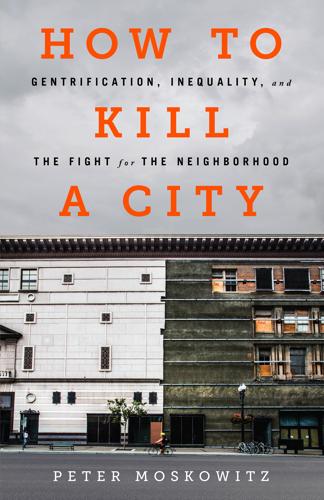
How to Kill a City: The Real Story of Gentrification
by
Peter Moskowitz
Published 7 Mar 2017
Chapter 4: The New Detroit Since then, at least fifteen development projects: David Muller, “A Closer Look at Dan Gilbert’s Plans for Capitol Park in Downtown Detroit,” MLive, April 2, 2013. he now owns at least eighty buildings downtown: J. C. Reindl, “Dan Gilbert’s Bedrock Buys 3 More Buildings Downtown,” Detroit Free Press, January 20, 2016. “Do well by doing good”: CBS News, “Developer Buying Real Estate in a Downtrodden Detroit Says He Is ‘Doing Well by Doing Good’ in an Effort to Revitalize the City—60 Minutes,” press release, October 11, 2013; see also Dan Gilbert interview with Bob Simon, “Detroit,” 60 Minutes, CBS News, October 13, 2013. He’s hailed by business leaders, city officials: Tim Alberta, “Is Dan Gilbert Detroit’s New Superhero?”
…
He personally chose Detroit Bikes as a tenant in the Albert. Gilbert’s mission, he says, is not only to make hundreds of millions of dollars on Detroit’s cheap real estate but also to transform Detroit’s downtown into a world-class destination for tourists, businesses, and especially young people. As his favorite motto goes: “Do well by doing good.” That mission has made him a lightning rod in the city. He’s hailed by business leaders, city officials, and the local and national media (one article even called him a superhero). He’s also criticized by activists for turning Detroit into somewhat of an oligarchy in which he and a few other powerful people control its redevelopment, especially downtown, which locals now often refer to as “Gilbertville.”
…
In the parlance of new Detroit, Zak Pashak isn’t just creating expensive bikes, he’s making sure people here are being lifted up by the rising tide of bicycle manufacturing. Phil Cooley isn’t just a profiteer, he’s participating in the burgeoning democracy of Detroit. Dan Gilbert’s favorite business phrase—“Do well by doing good”—seems to be the official slogan of the new Detroit, embraced by hundreds of young white entrepreneurs who believe they’re not only making money but helping rescue an entire city. That’s why speaking with Midtown Inc.’s Sue Mosey was refreshing. She can talk about the profit motive of the new Detroit without resorting to euphemisms for trickle-down economics.
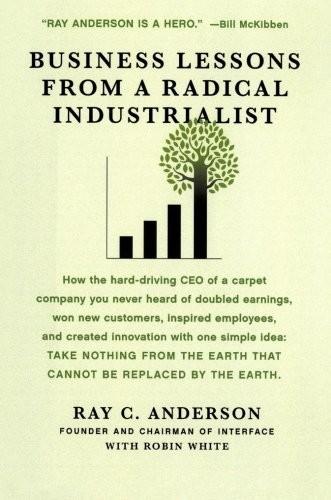
Business Lessons From a Radical Industrialist
by
Ray C. Anderson
Published 28 Mar 2011
And if enough people did it, the planet. In fact, since 2003, we’ve manufactured and sold over eighty-three million square yards of carpet with no net global-warming effect—zero—to the earth. We call these climate-neutral products “Cool Carpet,™” and they have been runaway bestsellers. That’s competitive advantage at its best—doing well by doing good. Here’s the thing: Sustainability has given my company a competitive edge in more ways than one. It has proven to be the most powerful marketplace differentiator I have known in my long career. Our costs are down, our profits are up, and our products are the best they’ve ever been. It has rewarded us with more positive visibility and goodwill among our customers than the slickest, most expensive advertising or marketing campaign could possibly have generated.
…
Households turn trash into money they can really spend, and the stores they visit see more customers coming in to redeem their Recycle Dollars. We’ve turned an expensive problem into several major income streams. We’re growing our company by changing how people think about what they consume and waste.” Now that is thinking in the round, new thinking, and sustainability at its best—doing well by doing good. Right now RecycleBank serves over 300,000 households in fifteen states and is in the process of offering service to over a million more homes. Fortune magazine has named it one of the Top Eleven Green Businesses, and the World Economic Forum recently recognized RecycleBank with a Technology Pioneer Award.
…
In 1994, a simple question, What is Interface doing for the environment? became the driving force that compelled us to discover a new business strategy, and to design it to succeed in the face of tightening resources—a strategy that connected profitability and the environment with a notion called doing well by doing good. And though we started off with no compass, no map, and no path to follow, we have come amazingly far. I think it might be worth restating just exactly how far. • Since 1996, our baseline year, Interface has cut its net greenhouse gas emissions by 71 percent (in absolute tons). • During the same span, our sales have increased by 60 percent.
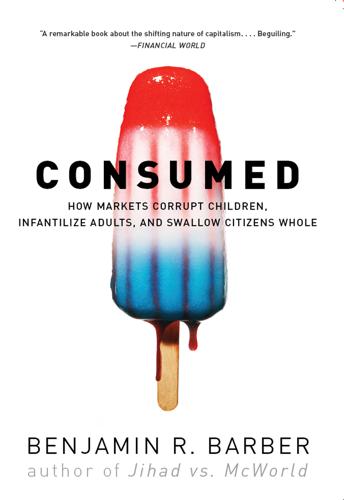
Consumed: How Markets Corrupt Children, Infantilize Adults, and Swallow Citizens Whole
by
Benjamin R. Barber
Published 1 Jan 2007
In rhetoric that could have been used for Andrew Carnegie, Time set up Gates: “Billionaires are…removed [from reality],” it pontificated, “nestled atop fantastic wealth where they never again have to place their own calls or defrost dinner or fly commercial.” But not Gates: “For being shrewd about doing good, for rewiring politics and re-engineering justice, for making mercy smarter and hope strategic and then daring the rest of us to follow,” Bill Gates (and Melinda and Bono too) was a Time Person of the Year.91 The Protestant way: doing well by doing good. And you don’t have to be Christian anymore to grasp it. It is a residual of a vanishing system, still evident in big-time philanthropy, even as we plunge into an era of rank infantilization and bottom-line consumer capitalism. We can be glad Carnegie built libraries, glad that the Gateses are battling AIDS, but inequality will not end because billionaires give back some of the spoils of monopoly.
…
This has been the well-intentioned but disastrous tactic of private-sector do-gooders from the time of the National Consumers League in the early twentieth century to today’s advocates of the citizen consumer and the champions of corporate responsibility. It was President Bush’s failed tactic in responding to Hurricane Katrina. Urge shoppers to lobby via their dollars and euros and yen to somehow spend their way to the better world that government is supposedly no longer fit to seek; urge managers to “do well by doing good” by being responsible and giving time off for workers who do community service, and by thinking about the needs of the communities in which they reside—right up to the moment the bottom line dictates that their do-good companies abandon them for more profitable climes abroad. Such approaches have an obvious appeal in their goodwilled, philanthropic impulses, but they fall far short of either matching what democracy can do or even rescuing capitalism from what ails it.
…
The reforms they champion do not renounce supply and demand in favor of command economy public goods, but use market exchange to produce civic outcomes and public benefits. These market-side reformers see in consumers like the National Advertiser’s Andy Consumer an instrument of demand-side power—for example, boycotts—and in corporations a supply-side tool of responsible organizational citizenship that can “do well by doing good.” They play the market to change how the market does business. On the demand side, “civic consumerism” hopes to “empower” consumers for real by making them thoughtful and responsible shoppers using collective consumer clout to shape what is sold and how it is sold. They want to turn the aggressive “push marketing” economy that manufactures and sells faux needs back into a satisfying pull economy of real products and services meeting genuine human needs, or at least reasonable human wants.
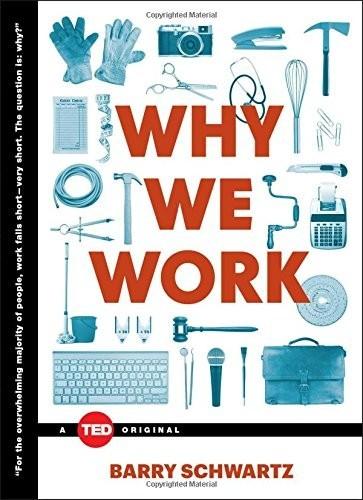
Why We Work
by
Barry Schwartz
Published 31 Aug 2015
As a consequence, people never get the opportunity to develop wise judgment. Your lack of faith in the skills of the people you oversee is validated, leading you to impose still more rules and still greater oversight. And if you think that people lack the will to do their work in pursuit of the right aims, you create incentives that enable people to do well by doing good. In so doing, you undermine whatever motivation people might have to do the right thing because it is the right thing. Once again, your lack of confidence is validated. Instead of putting in place procedures that nurture people’s desire to do meaningful work, the manager, convinced that such attributes are a very slender reed on which to build and run an organization, puts practices in place that undermine them.
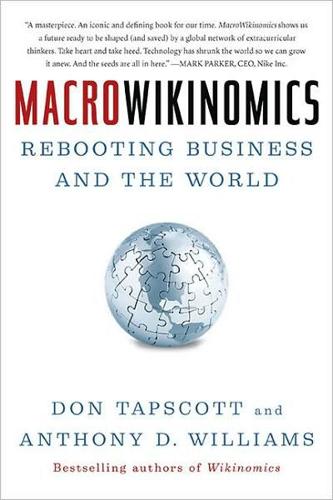
MacroWikinomics: Rebooting Business and the World
by
Don Tapscott
and
Anthony D. Williams
Published 28 Sep 2010
Vibrant markets rest on robust common foundations: a shared infrastructure of rules, institutions, knowledge, standards, and technologies provided by a mix of public and private sector initiative. 4. Integrity Years ago corporate social responsibility advocates coined the optimistic adage, “you do well by doing good.” They were trying to make a business case for good corporate behavior. Few were persuaded. The main reason for the lack of success in winning support for corporate responsibility was that the “doing well by doing good” adage was not true. Many companies did well by being bad. Creative accounting, unfair labor practices, corporate secrecy, monopolistic behaviors, externalizing costs to society, and shady environmental behaviors could help beef up the bottom line.
…
Creative accounting, unfair labor practices, corporate secrecy, monopolistic behaviors, externalizing costs to society, and shady environmental behaviors could help beef up the bottom line. Not to mention that corporate executives themselves could “do well” by paying astronomical bonuses, even while their companies were struggling. But all that is changing. Because the previously discussed principles are driving success, increasingly the “doing well by doing good” adage is becoming true. Companies that do bad things tend to fail. There is strong evidence that companies and other organizations are being forced to act with integrity, not just by regulators and institutional shareholders, but also because of the forces of this complex networked age, in particular transparency.
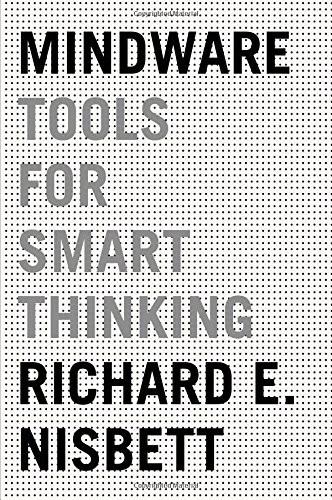
Mindware: Tools for Smart Thinking
by
Richard E. Nisbett
Published 17 Aug 2015
Why the Legal Profession Resists Gatekeeping”; O’Brien, Sommers, and Ellsworth, “Ask and What Shall Ye Receive? A Guide for Using and Interpreting What Jurors Tell Us”; Thompson, Fong, and Rosenhan, “Inadmissible Evidence and Juror Verdicts.” 4. SHOULD YOU THINK LIKE AN ECONOMIST? 1. Dunn, Aknin, and Norton, “Spending Money on Others Promotes Happiness.” 2. Borgonovi, “Doing Well by Doing Good: The Relationship Between Formal Volunteering and Self-Reported Health and Happiness.” 3. Heckman, “Skill Formation and the Economics of Investing in Disadvantaged Children”; Knudsen et al., “Economic, Neurobiological, and Behavioral Perspectives on Building America’s Future Workforce.” 4.
…
Chawes, T. Skov, G. Pauldan-Muller, J. Stokholm, B. Smith, and K. A. Krogfelt. “Reduced Diversity of the Intestinal Microbiota During Infancy Is Associated with Increased Risk of Allergic Disease at School Age.” Journal of Allergy and Clinical Immunology 128 (2011): 646–52. Borgonovi, Francesca. “Doing Well by Doing Good: The Relationship Between Formal Volunteering and Self-Reported Health and Happiness.” Social Science and Medicine 66 (2008): 2321–34. Brockman, John. What We Believe but Cannot Prove. New York: HarperCollins, 2006. Brown, B. Bradford, Sue Ann Eicher, and Sandra Petrie. “The Importance of Peer Group (‘Crowd’) Affiliation in Adolescence.”
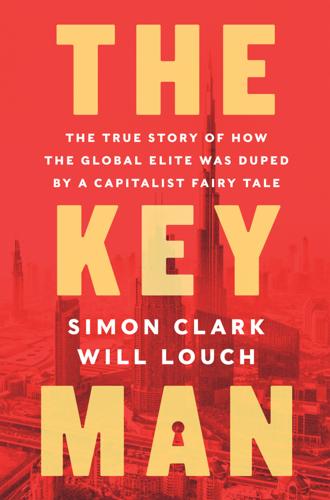
The Key Man: The True Story of How the Global Elite Was Duped by a Capitalist Fairy Tale
by
Simon Clark
and
Will Louch
Published 14 Jul 2021
Arif had taken more than $780 million: Klestadt Winters Jureller Southard & Stevems LLP, “Application of Abraaj Investment Management Limited: For an Order to Obtain Discovery for Use in Foreign Proceedings Pursuant to 28 USC 1782,” United States District Court, Southern District of New York, Case 1:20-mc-00229, June 12, 2020. Mission: Impossible films: “Doing Well by Doing Good? Private Equity Investing in Emerging Markets,” published by the London School of Economics, 2013, www.mixcloud.com/lse/doing-well-by-doing-good-private-equity-investing-in-emerging-markets-audio/ healthcare in poor countries: United States of America vs. Arif Naqvi, Waqar Siddique, Rafique Lakhani, Mustafa Abdel-Wadood, Ashish Dave and Sivendran Vettivetpillai, S6 19 Cr. 233 Superseding Indictment, United States District Court, Southern District of New York, 2019.
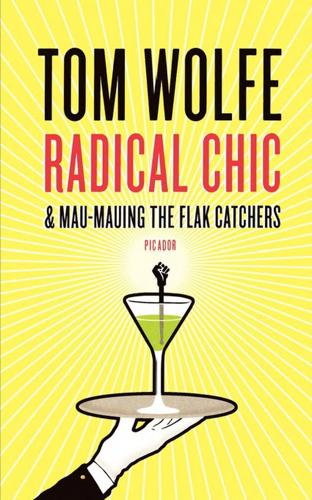
Radical Chic & Mau-Mauing the Flak Catchers
by
Tom Wolfe
Published 1 Jan 1970
Lee, the original “public relations counsel,” managed to convert his reputation from that of robber baron and widow-fleecer to that of august old sage philanthropist so rapidly that small children cried when he died. His strategy was to set up several hundred million dollars‟ worth of foundations for Culture and scientific research. Among the new socialites of the 1960s, especially those from the one-time “minorities,” this old social urge to do well by doing good, as it says in the song, has taken a more specific political direction. This has often been true of Jewish socialites and culturati, although it has by no means been confined to them. Politically, Jews have been unique among the groups that came to New York in the great migrations of the late 19th and early 20th centuries.
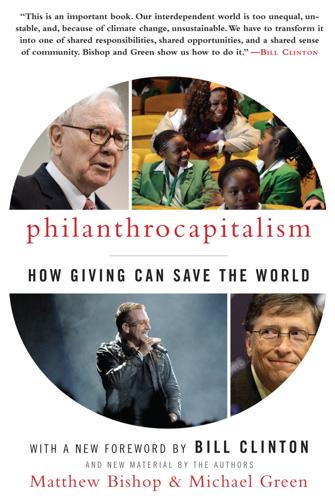
Philanthrocapitalism
by
Matthew Bishop
,
Michael Green
and
Bill Clinton
Published 29 Sep 2008
Even if they do think about it, it is all too rare that an executive is willing to incur the short-run costs (such as that R&D–like philanthropy) necessary to achieve that more profitable long-term goal. Spending on lobbying against change that may impose a short-term cost is often the reflex reaction. Corporate “doing well by doing good” may provide a win-win for the firm and society, but it is a win that too few firms even attempt—which is why those firms that do try surely deserve the public’s encouragement. This enlightened self-interest case for business to engage fully in society was set out by Klaus Schwab, founder of the World Economic Forum, in the January-February 2008 issue of Foreign Affairs.
…
Gates and G.E.’s Jeffrey Immelt, among others, also recognize that, in the past, business leaders have often failed to understand the role their firms play by meeting important social needs, and this lack of understanding has over the years meant that firms have missed many profitable opportunities to “do well by doing good.” Gates is surely right to argue for more effort to be made, by governments and business to create even more incentives—whether financial or in terms of positive public recognition of good behavior—to find market-based solutions to big problems. Yet, what Gates recognizes, and Barro apparently does not, is that for all its virtues, business cannot meet all society’s needs.
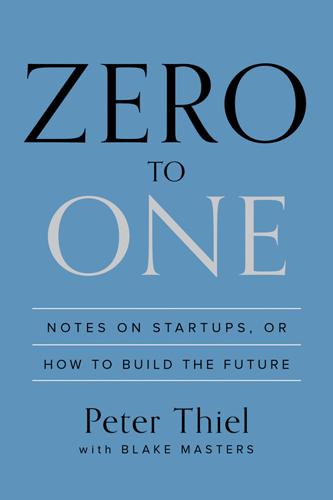
Zero to One: Notes on Startups, or How to Build the Future
by
Peter Thiel
and
Blake Masters
Published 15 Sep 2014
This philanthropic approach to business starts with the idea that corporations and nonprofits have until now been polar opposites: corporations have great power, but they’re shackled to the profit motive; nonprofits pursue the public interest, but they’re weak players in the wider economy. Social entrepreneurs aim to combine the best of both worlds and “do well by doing good.” Usually they end up doing neither. The ambiguity between social and financial goals doesn’t help. But the ambiguity in the word “social” is even more of a problem: if something is “socially good,” is it good for society, or merely seen as good by society? Whatever is good enough to receive applause from all audiences can only be conventional, like the general idea of green energy.
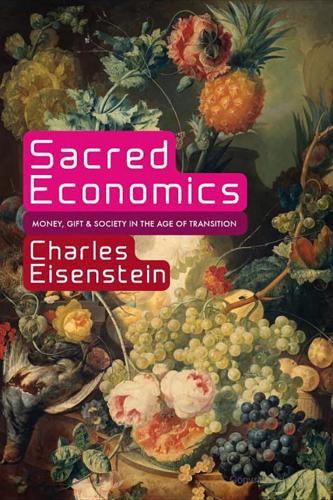
Sacred Economics: Money, Gift, and Society in the Age of Transition
by
Charles Eisenstein
Published 11 Jul 2011
Today, an ethical business movement and ethical investment movement seek to heal the opposition between love and profit, but however sincere the motives, such efforts often mutate into public relations, “green-washing,” or self-righteousness. This is no accident. In later chapters I will describe a fatal contradiction in the attempt to invest ethically, but for now just note your natural suspicion of it, and in general of any claim to “do well by doing good.” Any time we come across a seemingly altruistic enterprise, we tend to think, “What’s the catch?” How are they secretly making money from this? When are they going to ask me for money? The suspicion, “He’s actually doing it for the money” is nearly universal. We are quick to descry financial motives in everything people do, and we are deeply moved when someone does something so magnanimous or so naively generous that such motive is obviously absent.
…
Consider one of the most inspiring types of socially conscious investing: microloans to women in South Asia. These programs have apparently been a huge success, empowering women in India and Bangladesh with new livelihoods while bearing an extremely low rate of defaults. If there were ever an example of “doing well by doing good,” this is it. You lend $500 to an Indian woman to buy a milch cow. She sells the milk to her fellow villagers and earns enough income to feed her family and pay off the interest and principal on the loan. Sounds great, but consider for a moment: where does the repayment money come from? It comes from the villagers.
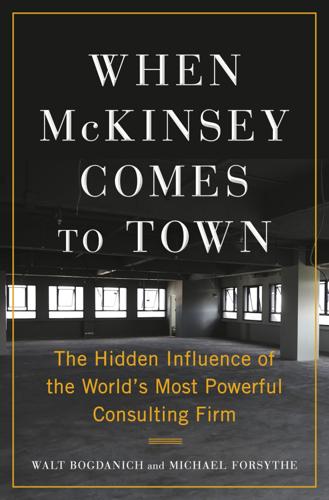
When McKinsey Comes to Town: The Hidden Influence of the World's Most Powerful Consulting Firm
by
Walt Bogdanich
and
Michael Forsythe
Published 3 Oct 2022
“On my first day,” she recalled, “I said, ‘I don’t want to work for any oil companies.’ ” Karma said he didn’t want to work for a pharmaceutical company. McKinsey honored both requests. “My first project was working for a local museum,” said Rosenthal, now a history professor at the University of California, Berkeley. Other companies talk about doing well by doing good. Google once had a simple motto: “Don’t be evil.” That motto disappeared from the preamble to its code of conduct in 2018 during the tenure of its chief executive, a former McKinsey consultant, Sundar Pichai. Few companies promote “values” as a recruiting tool with the fervor of McKinsey.
…
He wasn’t asking for specific policies that might affect oil or coal production but instead calling for markets to somehow work their magic. Despite Aspen’s lofty aspirations, the “solutions” that usually emerge have a common theme: they involve little or no sacrifice from the world’s billionaires or big corporations. Instead, they focus on the private sector “doing well by doing good”—with small measures to address pressing problems that often call for collective action. It’s good PR. That’s the critique offered by Anand Giridharadas, a former McKinsey consultant and a former Aspen fellow. In a 2015 speech to his fellow fellows, he questioned the entire premise of the organization, saying it makes the rich and powerful feel virtuous about the incremental good deeds their companies do under the banner of “corporate social responsibility” while their core businesses continue to inflict harm.
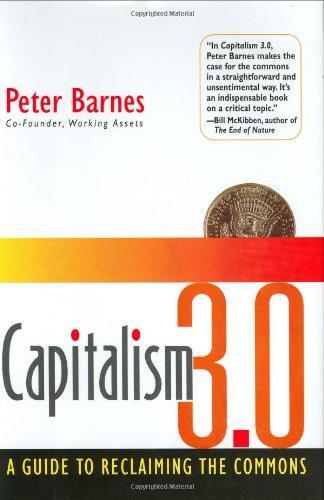
Capitalism 3.0: A Guide to Reclaiming the Commons
by
Peter Barnes
Published 29 Sep 2006
In theory, if enough people invested this way, they could lure corporations into behaving better than they otherwise might. In reality, though, it hasn’t worked like that, and doesn’t seem likely to. One reason is that socially screened investment funds (with a few exceptions) aren’t willing to accept a lower rate of financial return. “Doing well by doing good” is their mantra, and they strive to beat, or at least equal, the returns of funds that are not socially screened. When they succeed (and often they do), this “proves” that social responsibility makes good business sense. On the other hand, it means the funds can demand of companies only “good” behavior that enhances the bottom line.
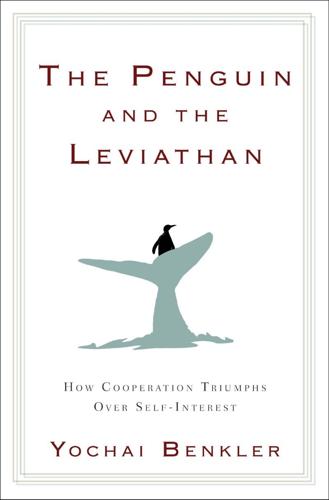
The Penguin and the Leviathan: How Cooperation Triumphs Over Self-Interest
by
Yochai Benkler
Published 8 Aug 2011
A strong element of trust further reinforces the community feel; there are no attendants to check the condition of a car once it is returned; members are simply encouraged to return the car clean, in good shape, with a full tank of fuel, for the next user—which they do, with amazing consistency. In other words, the company presents itself less like a business and more like a sort of environmentally conscious club. Is this a manipulation? Not really. To listen to Robin Chase, one of the company’s cofounders, there’s no question that the company really was founded on a belief of doing well by doing good: of improving urban transportation while reducing carbon emissions. But the pureness of intent isn’t the point; the point is that painting itself as a community not only wins Zipcar customers, it also motivates them to follow the rules and treat the cars, and other members, well. In this, it is like a real-world version of the Wall Street/Community Game experiment.
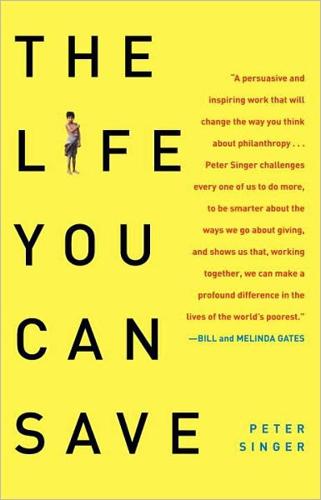
Life You Can Save: Acting Now to End World Poverty
by
Peter Singer
Published 3 Mar 2009
(Chicago: Northwestern University Press, 1963), p. 297. Cited by Haidt. 21. Arthur Books, “Why Giving Makes You Happy,” New York Sun, December 28, 2007. The first study is from the Social Capital Community Benchmark Survey, while the second is from the University of Michigan’s Panel Study of Income Dynamics. 22. J. A. Piliavin, “Doing Well by Doing Good: Benefits for the Benefactor,” in C.L.M. Keyes and J. Haidt (eds.), Flourishing: Positive Psychology and the Life Well-Lived (Washington, D.C.: American Psychological Association, 2003), pp. 227-47; S. L. Brown, R. M. Nesse, A. D. Vinokur, and D. M. Smith, “Providing Social Support May Be More Beneficial Than Receiving It: Results from a Prospective Study of Mortality,” Psychological Science 14 (2003), pp. 320-27; P.
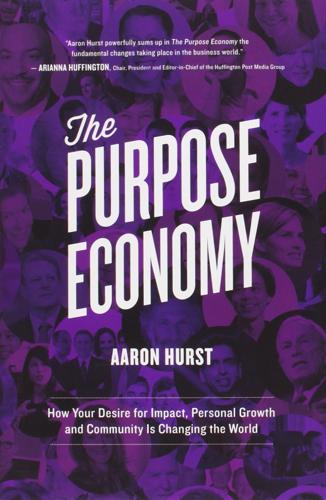
The Purpose Economy: How Your Desire for Impact, Personal Growth and Community Is Changing the World
by
Aaron Hurst
Published 31 Aug 2013
…Millennials [are] confident, self-expressive, liberal, upbeat and open to change.”4 Millennials were not only born into a world of much more perceived affluence than prior generations, but also into one in which these values and aspirations were gaining traction. Inspiring examples of Purpose Economy achievements could be seen all around them. As they came of age, the environmental movement was going mainstream; pioneering social entrepreneurs were popularizing the idea of “doing well by doing good,” with forerunners like Paul Hawken of Smith & Hawken, Ben & Jerry’s, and Anita Roddick of the Body Shop popularizing a new ethic of corporate social responsibility. Meanwhile, celebrities like Matt Damon, Angelina Jolie, and George Clooney were popularizing a new ethic of individual engagement, making it cool to be socially engaged.

The Coffee Book: Anatomy of an Industry From Crop to the Last Drop
by
Gregory Dicum
and
Nina Luttinger
Published 1 Jan 1999
Source: Equal Erchange Based in Massachusetts but with distribution throughout the country, Equal Exchange remains the largest 100-percent Fair Trade coffee company in the country today (and one of the largest worker-owned cooperatives). Experiencing dramatic growth in recent years—20 to 30 percent per year, and $20 million in sales for 2005—Equal Exchange, perhaps better than any other company, is a living demonstration that a company can do well by doing good in the world. Indeed, Equal Exchange’s approach has gained so much trust among coffee growers that a pair of Latin American Fair Trade producer co-ops have actually made substantial investments in the company. Third-party Fair Trade certification did not begin in the United States until 1999, with the launch of TransFair USA.
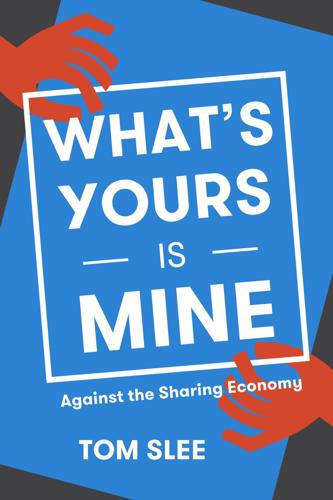
What's Yours Is Mine: Against the Sharing Economy
by
Tom Slee
Published 18 Nov 2015
Industries built on openness have delivered some remarkable things, but they have repeatedly failed to deliver on their promises of democratization and equality, and the Sharing Economy is busy running down the path paved by these previous industries. As Silicon Valley has grown wealthier and more powerful, the beliefs that you can do well by doing good and that markets can in fact be used to “scale up” efforts for social change, have become mainstream within Internet culture. It’s a viewpoint sometimes called the Californian Ideology.3 From global poverty to civil liberties to education and healthcare, Internet culture sees the combination of technology and the entrepreneurial mindset as the key to solving our biggest problems.
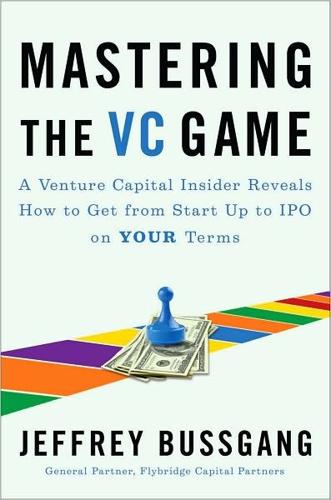
Mastering the VC Game: A Venture Capital Insider Reveals How to Get From Start-Up to IPO on Your Terms
by
Jeffrey Bussgang
Published 31 Mar 2010
Michael wanted to start a company that would help parents set aside money for college tuition and also enable large consumer companies to create strong customer relationships through loyalty programs. Over breakfast, Michael described the idea in great detail and the unique culture we could create by building a company that would do well by doing good. I have to confess that he had me at “hello.” It wasn’t that I wanted out of Open Market. I was perfectly happy there. Once again, however, the siren call of starting a new venture and the appeal of the mission were so strong that I decided to pursue my passion and joined Michael to help start the new company, becoming its founding president.
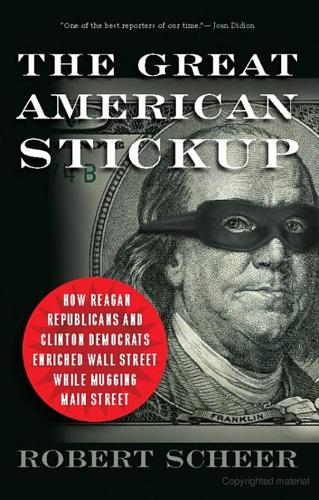
The Great American Stickup: How Reagan Republicans and Clinton Democrats Enriched Wall Street While Mugging Main Street
by
Robert Scheer
Published 14 Apr 2010
Is that what Bill Clinton considers middle class? A year before the scandal broke and four years before Fannie Mae was revealed as a disaster case—and taken over by the federal government even as its stock shares tumbled 90 percent—Raines was much celebrated as a typical elitist progressive “doing well by doing good.” Raised in a working-class family with a janitor father who built a home with his bare hands and struggled to keep a roof over his family’s head, Raines’s story made for great profile copy on NPR and in such national publications as the New York Times and Ebony magazine. More important, it gave Fannie Mae credibility in saying its huge expansion in alternative lending—boldly labeled the “American Dream Initiative”—was for progressive ends: helping the poor and minorities become homeowners.
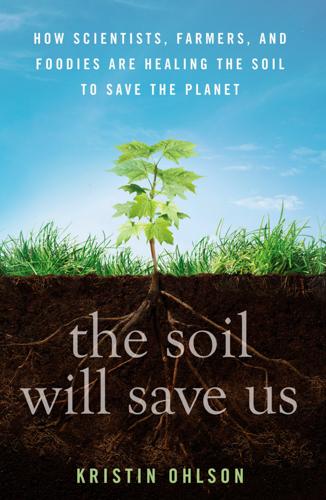
The Soil Will Save Us
by
Kristin Ohlson
Published 14 Oct 2014
“We tell our investors that they won’t get their dividend payments for three years,” Bradford said. “It’s called patience capital.” Like Abe Collins, Farmland LP is tapping into a relatively small pool of wealthy people who think agriculture that builds healthy soil is not only a social good but also one that can be profitable—the old doing-well-by-doing-good approach. But there are probably not enough of that sort of wealthy person to save the 99 percent of US agriculture where land managers routinely destroy soil with poor practices. Who else can offer them the incentive to change? We can, with the tax dollars that flow to the USDA. Founded in 1862 and signed into law by Abraham Lincoln—who called it “the people’s department”—the USDA is more often criticized than praised by good food and agriculture advocates.
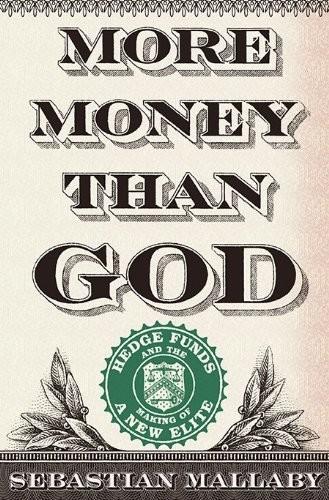
More Money Than God: Hedge Funds and the Making of a New Elite
by
Sebastian Mallaby
Published 9 Jun 2010
In 1998 it launched a merger-arb operation in London, arriving within a few months of its rivals, Och-Ziff and Perry Capital. It bought a stake in Alpargatas, a bankrupt Argentine textile and shoe maker. It installed new managers at Alpargatas and restructured the firm’s debt; soon some two thousand idled workers found themselves employed again, and Farallon had proved that it could do well by doing good in a frontier economy.21 But nothing could match what was about to follow. In November 2001, Farallon set out to buy the biggest bank in Indonesia. Farallon’s target, Bank Central Asia, had been founded by Liem Sioe Liong, who had been Indonesia’s richest man and a firm friend of the country’s modernizing dictator, Suharto.
…
Farallon installed a new chairman, brought in some consultants, and patiently coaxed the bank out of the Suharto era. By 2006, when Farallon sold most of its stake to an Indonesian partner, BCA’s share price had risen 550 percent since the purchase; just as with the Argentine shoe company, Farallon had shown it could do well by doing good in a tough country. But Farallon’s investment had another effect too. The spectacle of a swashbuckling hedge fund dashing into Indonesia turned heads in New York and London, and institutional investors began to give the country a sympathetic second look. In the year leading up to the BCA purchase, a mere $286 million of net portfolio investment had trickled into Indonesia; but the following year almost $1 billion of foreign capital came in, and the year after that brought more than $4 billion.30 Farallon had scrambled the market’s settled view on all Indonesian assets, setting the stage for a rebound.
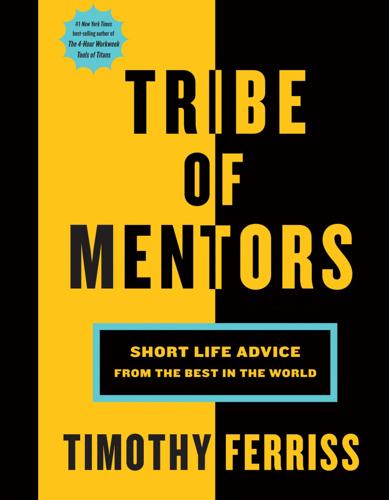
Tribe of Mentors: Short Life Advice From the Best in the World
by
Timothy Ferriss
Published 14 Jun 2017
With every step, you will discover more about who you want to be and what you want to do. If you wait for the perfect and keep all of your options open, you might end up with nothing but options. So start. What are bad recommendations you hear in your profession or area of expertise? “Do well by doing good.” Who wants to do well by doing bad? We have to do better. This moment in history demands that we put purpose before profit, that we take more seriously the fact that we have the tools, the imagination, and the resources to solve our toughest problems. So it is time to get on with it. When you feel overwhelmed or unfocused, what do you do?
…
Craig Newmark TW/FB: @craignewmark craigconnects.org CRAIG NEWMARK is a web pioneer, philanthropist, and leading advocate on behalf of trustworthy journalism, veterans and military families, and other civic and social justice causes. In 1995, Craig started curating a list of San Francisco arts and technology events he emailed to friends and colleagues. People were soon calling it “Craig’s List,” and when Craig turned it into a company, he monetized minimally, opting for a business model that prioritized “doing well by doing good.” In 2016, he created the Craig Newmark Foundation to promote investment in organizations that effectively serve their communities and drive broad civic engagement at the grassroots level. In 2017, he became a founding funder and executive committee member of the News Integrity Initiative, administered by the CUNY Graduate School of Journalism, which seeks to advance news literacy and increase trust in journalism
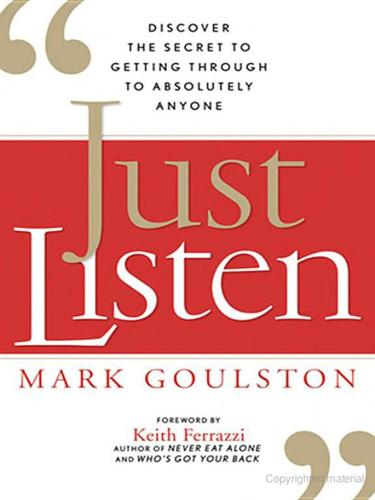
Just Listen: Discover the Secret to Getting Through to Absolutely Anyone
by
Mark Goulston M. D.
and
Keith Ferrazzi
Published 31 Aug 2009
By that point, he’d achieved tremendous popularity with the American public and was being considered as a presidential nominee. I happened to be in the audience that day, and General Powell had me (and everyone else) in the palm of his hand. He urged the audience to give back to their communities. He spoke passionately of his gratitude for his family, childhood, and friends. And he exhorted us all to “do well by doing good.” At the end of his talk, he called for questions. Still feeling the warm glow of his inspiring words, we were totally unprepared for what happened next. “General Powell,” the first questioner said, “I understand that your wife once suffered from depression, had to take medicine, and was even in a mental hospital.
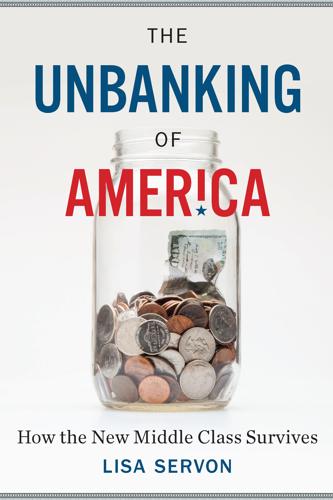
The Unbanking of America: How the New Middle Class Survives
by
Lisa Servon
Published 10 Jan 2017
Some innovations are designed explicitly to achieve a “double bottom line”—to make a profit for investors while also delivering better products at better prices to those who are not currently well served by the financial-services industry. Unlike the mega-banks that put profit above all else, many innovators are explicitly working to do well by doing good. These firms have real potential to impact the three factors my payday-lender and check-cashing customers cited as the reasons they chose to use alternative financial services: cost, transparency, and service. The innovators featured in this chapter are by no means the only ones doing important and interesting work, but they are representative of the range of talent and creativity that’s out there right now.
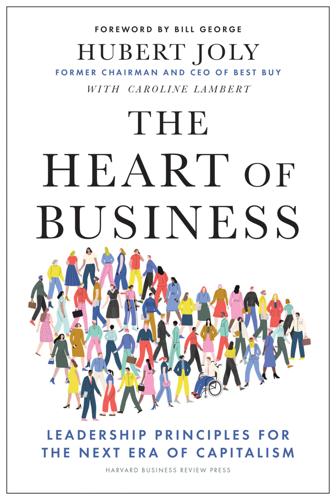
The Heart of Business: Leadership Principles for the Next Era of Capitalism
by
Hubert Joly
Published 14 Jun 2021
Eventually, even he threw in the towel and changed his recommendation. So, treat everyone as a customer, as a human being with real needs. Quite the revolution! * * * Once we reject the view of the business world as a zero-sum game, there is no limit to the power of “and.” Business can do well by doing good. Best Buy is addressing the needs of aging Americans like Stanley and growing an entirely new business. Our electronics recycling program saves valuable metals and drives traffic to the stores by providing a real service to customers. Investing in energy-efficient LED lights helps reduce carbon emission and reduces our operational costs by saving energy.

User Stories Applied: For Agile Software Development
by
Mike Cohn
Published 1 Mar 2004
He is interested in looking behind the specifics of technologies to the patterns, practices, and principles that last for many years; these books should be usable a decade from now. Martin’s criterion is that these are books he wished he could write. Kent Beck has pioneered people-oriented technologies like JUnit, Extreme Programming, and patterns for software development. Kent is interested in helping teams do well by doing good – finding a style of software development that simultaneously satisfies economic, aesthetic, emotional, and practical constraints. His books focus on touching the lives of the creators and users of software. * * * TITLES IN THE SERIES Implementation Patterns Kent Beck, ISBN 0321413091 Test-Driven Development: By Example Kent Beck, ISBN: 0321146530 User Stories Applied: For Agile Software Development Mike Cohn, ISBN: 0321205685 Implementing Lean Software Development: From Concept to Cash Mary and Tom Poppendieck, ISBN 0321437381 * * * Refactoring Databases: Evolutionary Database Design Scott W.
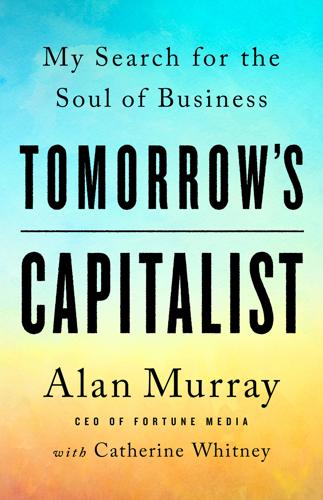
Tomorrow's Capitalist: My Search for the Soul of Business
by
Alan Murray
Published 15 Dec 2022
It was the brainchild of three friends who met at Stanford and became successful businessmen: Jay Coen Gilbert, cofounder of the apparel/basketball footwear company AND1; Bart Houlihan, an investment banker who joined as president; and Andrew Kassoy, an investment manager at several firms who became involved in sustainable business models. Their idea was simple—that business could do well by doing good, and that the approach could be formalized into a legal structure. In 2006 they created B Lab, a nonprofit with a framework for businesses that sought to be not only the “best in the world, but best for the world.”8 B Labs certifies companies for B Corp status, making them publicly accountable to stakeholders beyond shareholders.
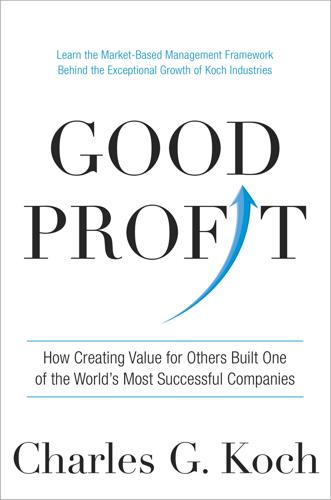
Good Profit: How Creating Value for Others Built One of the World's Most Successful Companies
by
Charles de Ganahl Koch
Published 14 Sep 2015
When a spontaneous order is created in which everyone wants to do the right thing and knows what that is, MBM works just as well on a shop floor as it does in a boardroom. And in doing so, it makes everyone’s life better—a necessary condition for good profit. CHAPTER 12 Conclusion THE REAL BOTTOM LINE Doing well by doing good. —THE MOTTO OF BEN FRANKLIN’S LEATHER APRON CLUB1 The bottom line of my business philosophy can best be summed up as follows: Good profit can only result from creating value for the customer. It is the manifestation of the entrepreneur’s respect for what the customer values. I am hopeful this book made that point at least half as well as Sterling Varner did one day in the 1970s when he blew his stack during a management meeting in Wichita.
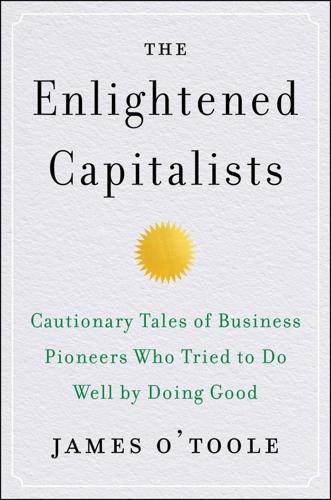
The Enlightened Capitalists
by
James O'Toole
Published 29 Dec 2018
He believed that conclusion was not paradoxical; in fact, he argued that the company’s most effective strategy would be to demonstrate to customers that it was a business with a soul. If the company managed to do that, he rationalized, customers would come. Believing that there was a growing “market for virtue,” he set the goal of capturing it. When he was finally convinced the company could both do good and do well—indeed, do well by doing good—he claimed to have experienced a sense of newfound freedom. Yet he realized that his have-it-both-ways strategy might sound a tad idealistic: “I can read your mind. ‘He thinks he can compete,’ you’re wondering, but where is this guy going to get the money?”69 Tom didn’t have an answer to his question.
…
Norton & Company, Inc. Cover design by Milan Bozic Cover photograph © Dmytro Synelnychenko/iStock/Getty Images (texture) Library of Congress Cataloging-in-Publication Data Names: O’Toole, James, author. Title: The enlightened capitalists: cautionary tales of business pioneers who tried to do well by doing good / James O’Toole. Description: New York: HarperCollins, [2018] | Includes bibliographical references. Identifiers: LCCN 2018024870 | ISBN 9780062880246 (hardcover) Subjects: LCSH: Businesspeople—United States—Biography. | Entrepreneurship—United States—History. | Businesspeople—United Kingdom—Biography. | Entrepreneurship—United Kingdom—History.
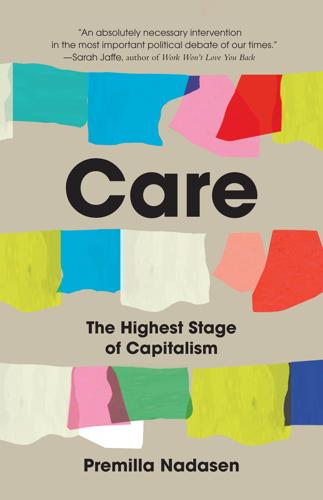
Care: The Highest Stage of Capitalism
by
Premilla Nadasen
Published 10 Oct 2023
This is distinct from what we might call collateral casualties of, for example, communities that were displaced for the purpose of extractive mining or the pain and suffering associated with the exploitation of colonial labor. Now, pain and suffering are lucrative rather than unintended effects. If someone feels pain, Big Pharma will quickly market a pill to alleviate it—but only for the right price and the right person. Companies that aim to meet “care” needs and “help” people adopt mottos like “doing well by doing good.”1 Stock prices are an indication that they are indeed doing well, but it’s not altogether clear that they are doing good. The sanitized discourse of “care work” as mutually beneficial and an alternative to neoliberalism, has, in fact, been deployed in service of neoliberalism. By masking unequal racial and economic access to care and the drive for profit underpinning the care economy, the care discourse transforms the paid and unpaid labor necessary to maintain and reproduce life—what Marxist feminists have called social reproduction—into a category disconnected from its larger economic and political significance.

Liberalism at Large: The World According to the Economist
by
Alex Zevin
Published 12 Nov 2019
The larger point is that Moss operated openly, and for seven more years after this dance of death, during which time his profile did not get any lower. Brazenly overlapping with studies for Crozier’s ISC, his Economist articles spread the alarm about supposed communist threats in Spain, Portugal, Northern Ireland, Iran, South Africa and Nicaragua.38 In all this, he showed that, in the free world, it was possible to do well by doing good: free trips from the Shah; quid-pro-quos for a cheery gloss on apartheid South Africa’s invasion of Angola; a £20,000 salary to edit VISION, a magazine owned by the Nicaraguan dictator Anastasio Somoza.39 Moss left the Economist in 1980, using contacts he had made there to publish his first novel, The Spike.
…
Major’s government spent £6 billion propping up the pound, and George Soros gained £1 billion betting against it – itself a case study in misallocated resources. 131.Weisberg, ‘The Tweed Jungle’, Vanity Fair, June 1993. 132.In searching for a historic parallel, the Marshall Plan had little resonance – a much closer fit was the concept of unconditional surrender: Burnet, America, p. 257; ‘Yankee Stay On’, 10 February 1990; ‘As the Tanks Rumble Away’, 1 September 1990; ‘Doing Well by Doing Good’, 15 June 1991. 133.‘If it comes to a choice between fudge without war and victory with war, Mr Bush should go to war.’ ‘Saying No’, 11 August 1990; ‘The Man with No Illusions’, 25 August 1990. 134.‘Blood on His Hands’, 19 January 1991. 135.Brian Beedham, ‘Niech zyje wiosna: Long Live Spring’, 12 August 1989. 136.Brian Beedham, ‘1989, and All That’, 23 December 1989. 137.

Overdiagnosed: Making People Sick in the Pursuit of Health
by
H. Gilbert Welch
,
Lisa M. Schwartz
and
Steven Woloshin
Published 18 Jan 2011
Manufacturers (those who make drugs or diagnostic and treatment devices) and health-care organizations (those who directly deliver these products) are largely influenced by the potential to profit. Simply stated, more diagnoses mean more patients for them and higher sales volumes. Nevertheless, they are undoubtedly also influenced by an element of true belief. Note that the combination is very powerful; it offers the prospect of “doing well by doing good.” Disease advocacy groups (for diabetes, thyroid cancer, and other disorders) and policy makers are largely composed of true believers. They promote more diagnosis because they believe it is the right thing to do for individuals and for society. Nonetheless, they also stand to profit from early diagnosis.
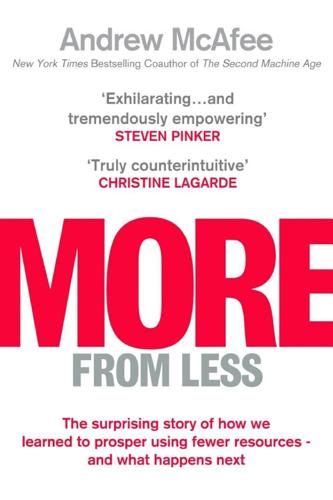
More From Less: The Surprising Story of How We Learned to Prosper Using Fewer Resources – and What Happens Next
by
Andrew McAfee
Published 30 Sep 2019
Smart policies can encourage this “rediffusion” of economic activity. So, too, can the realization that even the places that are getting left behind have a huge amount of human capital. As the social entrepreneur Leila Janah puts it, “Talent is equally distributed; opportunity is not.” This fact presents a great opportunity for companies to do well by doing good—to help themselves by building and tapping into the human capital that exists in disconnected communities. A number of intriguing efforts are underway to harness both the power of markets and the great global thirst for talent to create opportunity in places where it’s currently lacking. Samasource, founded by Janah in 2008, trains people to do entry-level technology work (such as data entry and image labeling) and connects them with employers.
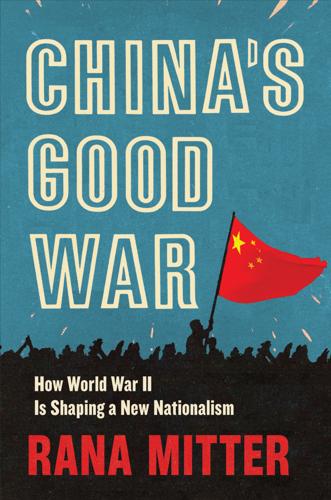
China's Good War
by
Rana Mitter
Although some doubts were expressed about the practicalities, the comparison was almost entirely positive. China had managed to portray its geopolitical ambitions in a way that the Western world saw as similar to one of the twentieth century’s greatest acts of development, both being viewed as projects in which the sponsoring power would “do well by doing good.”44 It is therefore ironic that China had already begun to edge away very fast from any comparison with the Marshall Plan. The year before the McKinsey podcast, an editorial titled “ ‘Belt and Road Initiatives’ No Marshall Plan of China” had appeared in the official English-language China Daily.

Green Swans: The Coming Boom in Regenerative Capitalism
by
John Elkington
Published 6 Apr 2020
In parallel, and crucially, exponential leaders must grapple with the ethical, moral, and social implications of the technologies they are evolving. Which brings us to the fourth skill set, that of the Humanitarian. Here we are advised, “Exponential leaders use the skills and behaviors of futurist, innovator and technologist to improve the lives of the people they touch, and society as a whole. They aim to do well by doing good—not as a separate set of ‘corporate social responsibility’ activities, but as part of the integrated company mission.” A key part of this will involve sidestepping the Midgley Syndrome outlined in Chapter 6, ensuring that tomorrow’s capitalism avoids causing systemic crises like those spotlighted in Figure 8 (see Annex, page 254), including “Insectageddon,”65 involving the catastrophic undermining of insect populations, and “The Great Hack,” the latter a Netflix branding of the hacking of the 2016 US presidential elections.66 Business cannot solve such challenges on its own.
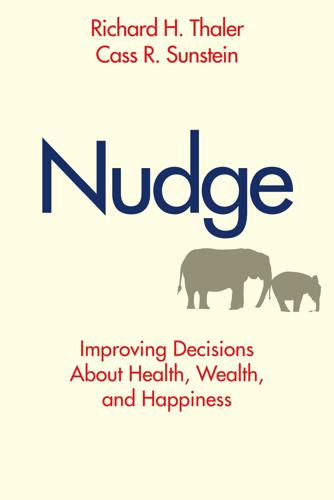
Nudge: Improving Decisions About Health, Wealth, and Happiness
by
Richard H. Thaler
and
Cass R. Sunstein
Published 7 Apr 2008
A well-known skinflint, Franklin calculated that thousands of pounds of candle wax could be saved with his idea. However, the idea did not catch on until World War I. In many cases, markets provide self-control services, and government is not needed at all. Companies can make a lot of money by strengthening Planners in their battle with Doers, often doing well by doing good. An interesting example is a distinctive financial services institution that used to be quite popular: the Christmas savings club. Here is how a Christmas club typically works. In November (around Thanksgiving) a customer opens an account at her local bank and commits herself to depositing a given amount (say $10) each week for the next year.
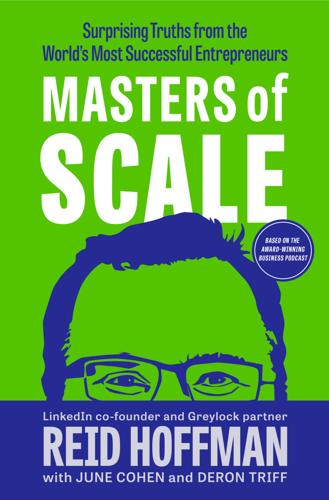
Masters of Scale: Surprising Truths From the World's Most Successful Entrepreneurs
by
Reid Hoffman
,
June Cohen
and
Deron Triff
Published 14 Oct 2021
“When I look back on what we’ve been able to achieve today, there’s no doubt in my mind—none whatsoever—that the twenty-eight thousand stores we have in seventy-six countries would never have been accomplished without the culture, values, and guiding principles. If the core purpose of the company wasn’t defined by putting our people first, and ensuring success, we would not be here. I know that for a fact.” This idea of doing well by doing good is far from universal today. And it was much less common when Howard took the reins at Starbucks in the late 1980s. His board members, at the time, didn’t quite know what to make of him. But he made the right bet—as demonstrated by Starbucks’ remarkable long-term growth in the years that followed
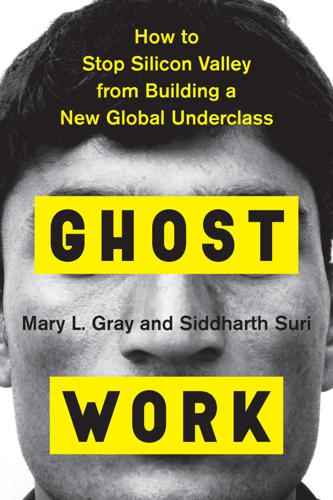
Ghost Work: How to Stop Silicon Valley From Building a New Global Underclass
by
Mary L. Gray
and
Siddharth Suri
Published 6 May 2019
Or companies can market people’s creative insights and labor as the valuable engine behind their services. But it’s businesses designed around workers’ contributions, prioritizing their schedules, project interests, and collaborations, that convert ghost work into a sustainable enterprise. Though these businesses strive to “do well by doing good,” they have learned, through close calls that nearly shuttered their startups, that paying attention to the workers in the loop improves their final products and services and, ultimately, their bottom line. A good example of an on-demand, for-profit company that prioritizes workers’ needs is CloudFactory.
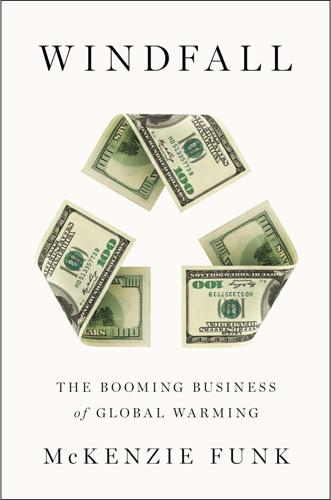
Windfall: The Booming Business of Global Warming
by
Mckenzie Funk
Published 22 Jan 2014
The research, Myhrvold explained, was partly underwritten by Bill Gates and the Gates Foundation—which would try almost anything to stamp out mosquito-borne malaria. “Bill is an investor in our company,” he said. “This stuff is sort of pro bono, but some of it, I think, will have a very profitable spin-out—we’ll do well by doing good.” At Microsoft, Myhrvold had been Gates’s in-house futurist and chief technology officer. At Cambridge, he had been a theoretical physics researcher under Stephen Hawking. He was a subject of Malcolm Gladwell profiles, darling of TED talks, and author of a 2,438-page, fifty-two-pound “modernist” cookbook—a man both celebrated and feared in tech circles.
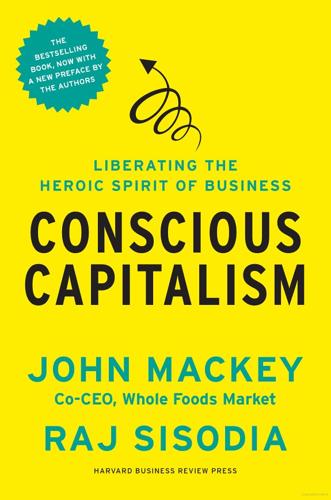
Conscious Capitalism, With a New Preface by the Authors: Liberating the Heroic Spirit of Business
by
John Mackey
,
Rajendra Sisodia
and
Bill George
Published 7 Jan 2014
The Tenets of Conscious Capitalism Conscious Capitalism is an evolving paradigm for business that simultaneously creates multiple kinds of value and well-being for all stakeholders: financial, intellectual, physical, ecological, social, cultural, emotional, ethical, and even spiritual. This new operating system for business is in far greater harmony with the ethos of our times and the essence of our evolving beings. Conscious Capitalism is not about being virtuous or doing well by doing good. It is a way of thinking about business that is more conscious of its higher purpose, its impacts on the world, and the relationships it has with its various constituencies and stakeholders. It reflects a deeper consciousness about why businesses exist and how they can create more value.

Pour Your Heart Into It: How Starbucks Built a Company One Cup at a Time
by
Howard Schultz
and
Dori Jones Yang
They are Starbucks, and its success reflects their achievements. CHAPTER 21 How Socially Responsible Can a Company Be? The evidence seems clear that those businesses which actively serve their many constituencies in creative, morally thoughtful ways also, over the long run, serve their shareholders best. Companies do, in fact, do well by doing good. —NORMAN LEAR, FOUNDER THE BUSINESS ENTERPRISE TRUST, IN AIMING HIGHER BY DAVID BOLLIER As CEO, my primary responsibility is to the people of Starbucks: partners, customers, and shareholders. I also feel accountable to those who came before me, those who created the legacy of Starbucks and built it into what it is today.
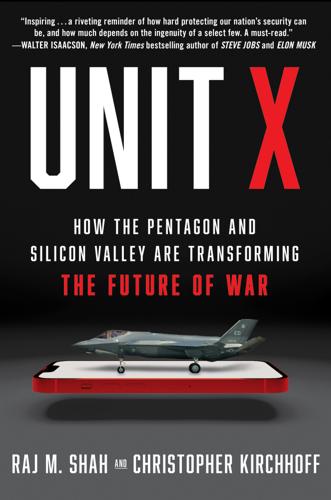
Unit X: How the Pentagon and Silicon Valley Are Transforming the Future of War
by
Raj M. Shah
and
Christopher Kirchhoff
Published 8 Jul 2024
But through a lucky break and a last-minute contract with a Fortune 500 customer, Raj and the company made it through—the kind of near-death experience that virtually all startups have on the way to succeeding. Supporting these risk-takers is what venture firms do. Today, Shield Capital helps innovative companies survive these existential crises—as a way to make money, yes, but also to preserve democracy. It’s absolutely possible to do well by doing good. And the trend is catching on, with more and more senior officials from the Pentagon helping startups work with the Department. Market forces pushing the DoD toward innovation are gaining steam. The Pentagon has an equally critical role to play by ingesting the technology being created for it.

Beautiful security
by
Andy Oram
and
John Viega
Published 15 Dec 2009
And as advertisers become more sophisticated, they’re less likely to tolerate opaque charges for services they can’t confirm they received. Meanwhile, the online advertising economy offers exciting opportunities for those with interdisciplinary interests, combining the creativity of a software engineer with the nose-tothe-ground determination of a detective and the public-spiritedness of a civil servant. Do well by doing good—catching bad guys in the process! ‖ Edelman, Benjamin. “Deterring Online Advertising Fraud Through Optimal Payment in Arrears.” February 19, 2008. http://ssrn.com/abstract=1095262. SECURING ONLINE ADVERTISING: RUSTLERS AND SHERIFFS IN THE NEW WILD WEST 105 CHAPTER SEVEN The Evolution of PGP’s Web of Trust Phil Zimmermann Jon Callas W HEN P RETTY G OOD P RIVACY (PGP) FIRST ARRIVED IN 1991, it was the first time ordinary people could use strong encryption that was previously available only to major governments.
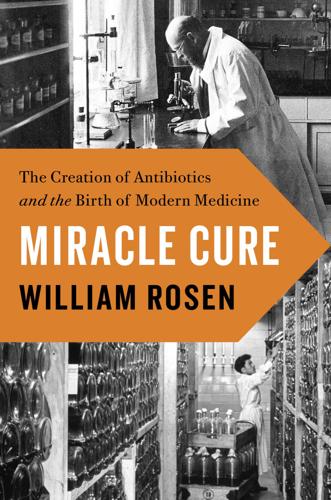
Miracle Cure
by
William Rosen
Published 14 Apr 2017
J. R. Macleod, and Charles Best at the University of Toronto in 1922, his legacy would be secure. Lilly persuaded them to join in what was then a groundbreaking partnership in developing their discovery—insulin—into a commercial product, which the company launched as Illetin in 1923. For doing well by doing good, it’s hard to top; as late as 1975, Eli Lilly still supplied the lifesaving compound to three-quarters of the entire American market. Insulin was scarcely Lilly’s only great innovation prior to the 1950s. Through the 1940s, the company’s labs produced the sedative Tuinal and Merthiolate, a widely used antiseptic.
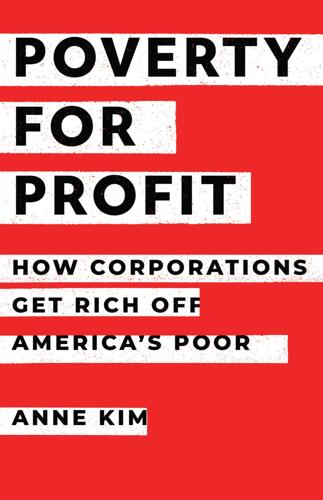
Poverty for Profit
by
Anne Kim
All too often, these for-profit interests sabotage the effectiveness of the government programs to which they owe their livelihood, and they perpetuate the poverty that is the raw material of their business. Over the past twenty years, so-called double-bottom-line companies have become increasingly fashionable. The idea of “doing well by doing good”—pursuing both profit and social impact—has especially caught on in the consumer market, where there’s strong and growing demand for ethically sourced, environmentally responsible products.1 Companies boast of “fair trade” coffee, “clean” cosmetics, and “green” production methods. Certified Fairtrade coffee sales, for instance, have grown from about $43 million in 2017 to about $68 million in 2020, according to Fairtrade America.2 Simply labeling a coffee “fair trade” increases its sales by nearly 10 percent, according to one Stanford University study.3 Assuming the truth of their labeling, many companies are changing their practices and business models to respond to consumer pressures.
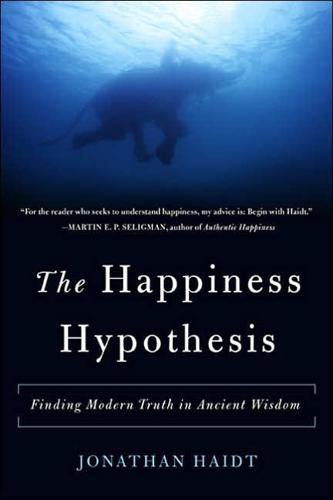
The Happiness Hypothesis: Finding Modern Truth in Ancient Wisdom
by
Jonathan Haidt
Published 26 Dec 2005
P. (2004). Character strengths and virtues: A handbook and classification. Washington, D C : American Psychological As - sociation and Oxford University Press. Piaget, J. (1965/1932). The moral judgment of the child. ( M . Gabain, T r a n s . ) New York: Free Press. Piliavin, J. A. (2003). Doing well by doing good: Benefits for the benefactor. In C. L. M. Keyes and J. Haidt (Eds.),, Flourishing: Positive psychology and the life well-lived (pp. 227—247). Washington, D C : American Psychological Association. P i n c o f f s , E. L. ( 1 9 8 6 ) . Quandaries and virtues: Against reductivism in ethics.
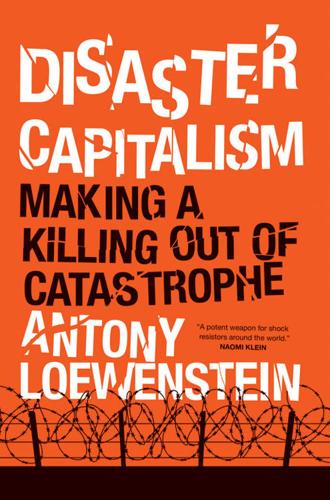
Disaster Capitalism: Making a Killing Out of Catastrophe
by
Antony Loewenstein
Published 1 Sep 2015
Meanwhile, a former employee of Mission Essential Personnel claimed in 2010 that more than a quarter of the translators working with US soldiers in Afghanistan had failed basic language tests but were sent into the field regardless. Matthew Mosk, Brian Ross, and Joseph Rhee, “Whistleblower Claims Many US Interpreters Can’t Speak Afghan Language,” ABC News, September 8, 2010. 20Scott Higham, Jessica Schulberg, and Steven Rich, “Doing Well by Doing Good: The High Price of Working in War Zones,” Washington Post, May 5, 2014. 21Sarah Stillman, “The Invisible Army,” New Yorker, June 6, 2011. 22Sam Black and Anjali Kamat, “After 12 Years of War, Labor Abuses Rampant on US Bases in Afghanistan,” Al Jazeera America, March 7, 2014. 23Chatterjee, Halliburton’s Army, p. xii. 24Tabassum Zakaria, Susan Cornwell, and Hadeel Al Shalchi, “For Benghazi Diplomatic Security, US Relied on Small British Firm,” Reuters, October 17, 2012. 25Tim Shorrock, “Exclusive: New Document Details America’s War Machine—and Secret Mass of Contractors in Afghanistan,” Salon, May 28, 2014, at salon.com. 26Declan Walsh, “Made Rich by US Presence, Many in Kandahar Now Face an Uncertain Future,” New York Times, December 9, 2014. 27In the ten months between June 2009 and April 2010, 260 PMCs employed by the Defense Department were killed in Afghanistan, while 324 US troops died.

Geek Heresy: Rescuing Social Change From the Cult of Technology
by
Kentaro Toyama
Published 25 May 2015
However much governments and nonprofits are criticized for their waste, none of them generates $300 million payouts for their chief executives and pretends that’s an effective way to direct goodwill. I’ve participated in several social enterprise competitions as a coach, mentor, or judge. Talented twenty-somethings feverishly pitch projects, hoping, like Blake Mycoskie, to “do well by doing good.” The projects are tested mainly for their financial sustainability (read “profitability”), their scalability (read “market penetration”), and novelty and uniqueness (read “potential monopoly power”). In the mad rush to conjure money out of hoi polloi, the “social return on investment” often becomes an afterthought.
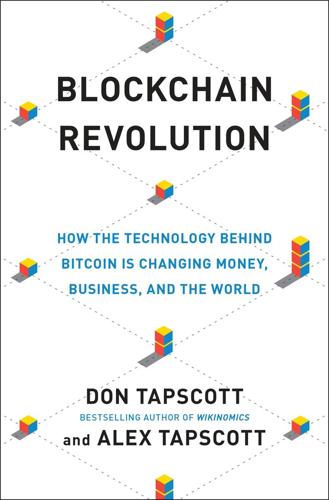
Blockchain Revolution: How the Technology Behind Bitcoin Is Changing Money, Business, and the World
by
Don Tapscott
and
Alex Tapscott
Published 9 May 2016
Indeed, integrity is a factor of production as important as labor, capital, and technology.”29 Wall Street lost trust (and nearly killed capitalism) because of a set of integrity violations. But has it changed? And will it change? In the past, corporate social responsibility advocates argued that companies “do well by doing good.” We haven’t seen the evidence. Many companies did well by doing bad—by having bad labor practices in the developing world, by externalizing their costs onto society such as pollution, by being monopolies and gouging customers. The collapse of 2008 taught us for sure that companies “do badly by being bad.”
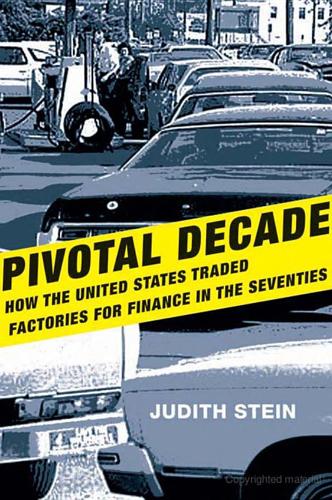
Pivotal Decade: How the United States Traded Factories for Finance in the Seventies
by
Judith Stein
Published 30 Apr 2010
Michael Blumenthal, another economics PhD, had worked in the State Department and Office of Trade Representative in the 1960s. He then moved into the business world, heading Bendix, a successful multinational corporation. A Jewish refugee from Nazi Germany, Blumenthal was the kind of Democratic businessman who believed that you could do well by doing good. Balancing Blumenthal was Secretary of Labor F. Ray Marshall, another PhD in economics. AFL-CIO chief George Meany had urged Carter to appoint John Dunlop, the Harvard labor economist who had been President Ford’s secretary of labor. Dunlop had resigned after Ford vetoed labor reform legislation that he had pledged to sign.
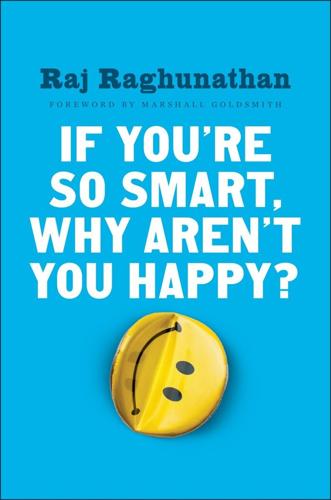
If You're So Smart, Why Aren't You Happy?
by
Raj Raghunathan
Published 25 Apr 2016
Mike summarizes many of the findings I have just reviewed in the interviews, which can be accessed at https://www.coursera.org/learn/happiness/lecture/ABiEE/week-3-video-8-why-the-need-to-love-and-give-enhances-happiness. To read about the effects of generosity on well-being, see J. A. Piliavin, “Doing Well by Doing Good: Benefits for the Benefactor,” in C. L. M. Keyes and J. Haidt (eds.), Flourishing: Positive Psychology and the Life Well-Lived (Washington, DC: APA, 2003), 227–47. being compassionate makes us “soft”: See J. Aaker, K. D. Vohs, and C. Mogilner, “Nonprofits Are Seen as Warm and For-profits as Competent: Firm Stereotypes Matter,” Journal of Consumer Research 37(2) (2010): 224–37.
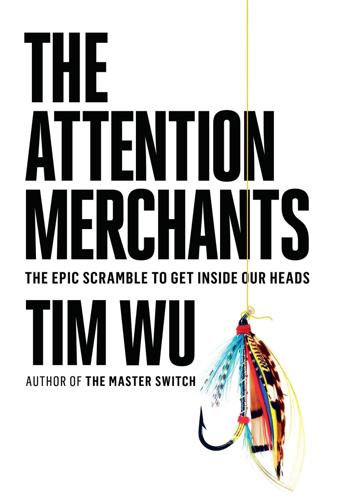
The Attention Merchants: The Epic Scramble to Get Inside Our Heads
by
Tim Wu
Published 14 May 2016
By the 2000s, Oprah Winfrey was one of the richest women in the United States, and the first African American billionaire in American history. Though hugely successful, she was not interested in being a dispassionate attention merchant in the manner of a William Paley. Rather, she remained convinced of the possibility of doing well by doing good, according to her vision. She would bring attention to many under-attended issues, like the abuse of children or dearth of opportunities for women or blacks. These were worthy pursuits by any measure. The difficulty arose when she pursued more controversial aspects of her vision of the good.
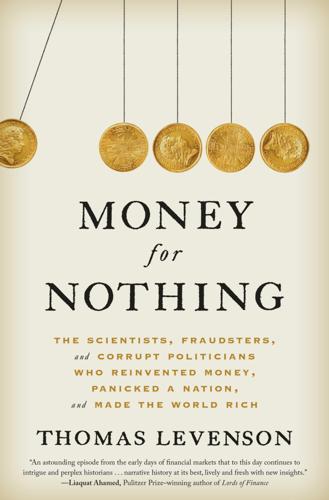
Money for Nothing
by
Thomas Levenson
Published 18 Aug 2020
Contemporary accounts and subsequent investigation show him to be a sincere proponent of the scheme. With his fellow earl, Sunderland, he pushed the South Sea Act through the House of Lords—but he didn’t need to be bribed to support what he seems to have genuinely believed was a good idea. (That’s not to say that those who were bribed couldn’t also believe; doing well by doing good is always a seductive dream.) One more uncorrupted man: Robert Walpole. This was no proof of Walpole’s probity. None of his contemporaries would have believed he was unbribable. The Tories’ failure to prove that he’d dipped his beak into army contracts as secretary of war didn’t dispel the cloud of suspicion, and his sudden rise to real wealth in the office of paymaster showed he knew how to play the game.
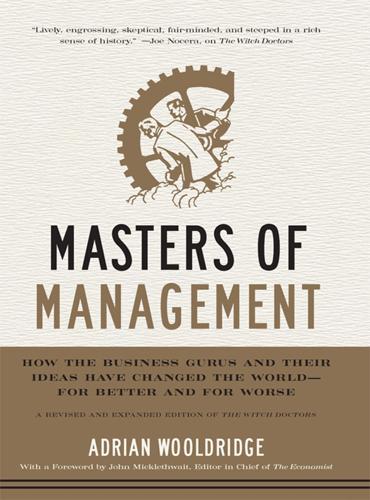
Masters of Management: How the Business Gurus and Their Ideas Have Changed the World—for Better and for Worse
by
Adrian Wooldridge
Published 29 Nov 2011
When Ralph Nader decided to swap the Potemkin world of pressure groups for electoral politics in 2000, he won only 3 percent of the vote, enough to put George W. Bush in the White House but not enough to prove that he had any popular legitimacy. And what about the claim that companies can do well by doing good? The trouble is that words are cheap: exhaustive studies have demonstrated that for all their claims to the contrary, shoppers and investors are not willing to put their money where their mouths are. Philip Morris is still one of the best-performing stocks in the world. A study by the Wharton Business School, at the University of Pennsylvania, found that “ethical” funds underperform the general market by 31 points a year.

Make Your Own Job: How the Entrepreneurial Work Ethic Exhausted America
by
Erik Baker
Published 13 Jan 2025
The Black economist Timothy Bates rejected the entrepreneurship-promotion strategy entirely, insisting that the only meaningful challenge to the “emerging status quo” could come “when younger generations of workers put forth a class-based agenda to reverse the decline of the institutionalized power of labor.”54 But despite Bates’s forthright call for “revolution,” it was Porter whose model garnered the greatest following, harmonizing as it did with the end of the century’s swelling enthusiasm for social entrepreneurship and “doing well by doing good.” Other philanthropic entrepreneurship boosters focused their efforts on the time-honored domain of education. One of the era’s power players was, remarkably enough, Junior Achievement, a survivor from the infancy of the entrepreneurial work ethic in the early twentieth century. After focusing for generations on afterschool programming, Junior Achievement expanded into American public-school classrooms in the ‘80s and ‘90s, partnering with schools to offer in-class entrepreneurship education programming.
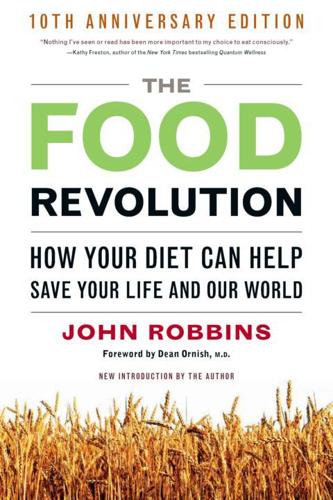
The Food Revolution: How Your Diet Can Help Save Your Life and Our World
by
John Robbins
Published 14 Sep 2010
Fraley, co-president of Monsanto's agricultural sector, seems to agree. After the company bought up yet another competing seed company, he said, "This is not just a consolidation of seed companies. It's really a consolidation of the entire food chain."56 This shines an interesting light on Monsanto's corporate slogan"Doing well by doing good." Are the Risks Overblown? There is a great deal of controversy about the safety of genetically engineered foods. Advocates of biotechnology often say that the risks are overblown. "There have been 25,000 trials of genetically modified crops in the world, now, and not a single incident, or anything dangerous in these releases," said a spokesman for Adventa Holdings, a U.K. biotech firm.
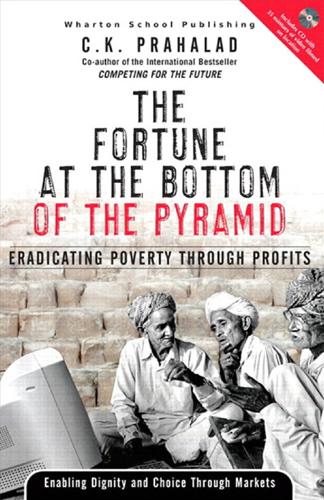
The fortune at the bottom of the pyramid
by
C. K. Prahalad
Published 15 Jan 2005
Private enterprise Civil society organizations and local government Economic development and social transformation Development and aid agencies BOP consumers BOP entrepreneurs Part I outlines how that can be accomplished by isolating principles from successful, large-scale experiments involving the entire private sector ecosystem. Most of the examples of successful experimentation are taken from the case studies included in Part II of the book. The bottom line is simple: It is possible to “do well by doing good.” 1 The Market at the Bottom of the Pyramid T urn on your television and you will see calls for money to help the world’s 4 billion poor—people who live on far less than $2 a day. In fact, the cry is so constant and the need so chronic that the tendency for many people is to tune out these images as well as the message.
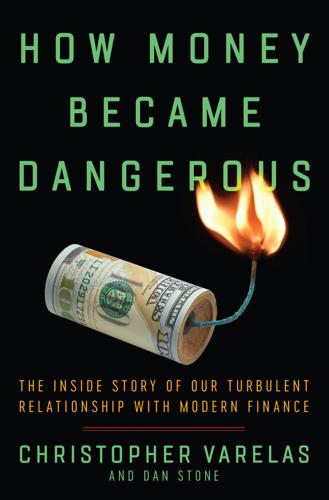
How Money Became Dangerous
by
Christopher Varelas
Published 15 Oct 2019
Is it possible to restore the balance? Today there is a lot of discussion and pressure to expand the mission of public companies to encompass more than only profit and maximizing shareholder value. One example is the B Corp, which certifies that a for-profit entity is voluntarily trying to do well by doing good, meeting higher standards of transparency, accountability, and performance. While the notion that “profit” should incorporate more than just bottom-line results and instead flow from a broader social purpose has begun to resonate with many both inside and outside the business community, the concept has had difficulty gaining traction with any entity that can’t afford to compromise its competitive position.
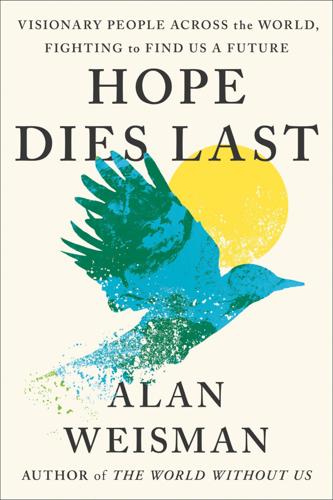
Hope Dies Last: Visionary People Across the World, Fighting to Find Us a Future
by
Alan Weisman
Published 21 Apr 2025
Pulling no punches, Eric would outline the stark political and climate realities of the world in which they hoped to make billions, then challenge them to turn existential problems into opportunities for making both money and a difference. A much-decorated military hero who still rushed to disasters worldwide and a gripping speaker, he’d elicit huge applause and promises that doing well by doing good was their every intention. Now he would give them their chance. He was proposing that ONR, the Office of Naval Research, fund a Marshallese-directed Kwajalein Atoll Sustainability Laboratory on Ebeye. KASL would invite foreign companies and researchers to test climate adaptation ideas in one of the planet’s most difficult places.

WTF?: What's the Future and Why It's Up to Us
by
Tim O'Reilly
Published 9 Oct 2017
Pierre Omidyar, the founder of eBay who went on to become a pioneer in what is now sometimes called “West Coast philanthropy,” which uses both traditional charitable giving and strategic startup investing as tools toward the same social goals, once told me, “I invest in businesses that can only do well by doing good.” Whether we work explicitly on causes and the public good, or work to improve our society by building a business, it’s important to think about the big picture, and what matters not just to us, but to building a sustainable economy in a sustainable world. 4. ASPIRE TO BE BETTER TOMORROW THAN YOU ARE TODAY.
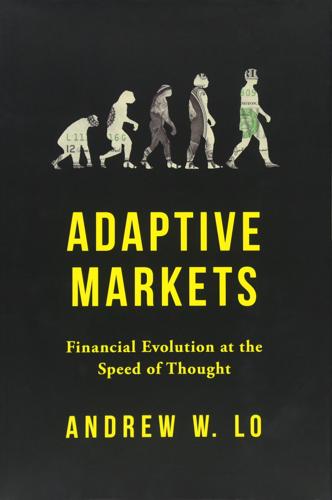
Adaptive Markets: Financial Evolution at the Speed of Thought
by
Andrew W. Lo
Published 3 Apr 2017
The Adaptive Markets Hypothesis tells us that we can improve a market, a method, or an entire financial system, adapting it to our needs and the challenges of our environment. The same traits that make the financial system prone to the madness of mobs also make the financial system extremely effective in gathering and deploying the wisdom of crowds. Finance doesn’t have to be a zero-sum game if we don’t let it. We can do well by doing good, and if we all work together, we can do it now. I can be Harvey Lodish, and so can you. Figure 3.1. Two views of the human brain (left figures) and color-coded renditions of Brodmann’s areas. Source: Mark Dow. Research Assistant Brain Development Lab, University of Oregon. Figure 3.2.
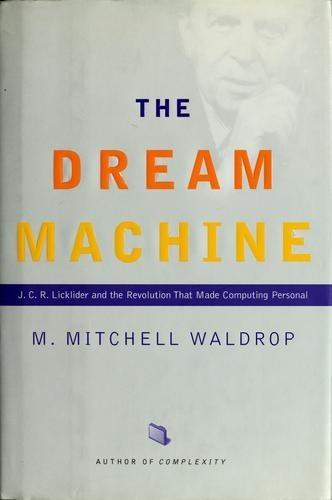
The Dream Machine: J.C.R. Licklider and the Revolution That Made Computing Personal
by
M. Mitchell Waldrop
Published 14 Apr 2001
By December 1955, a year after the first of these machines was delivered, IBM had installed 120 of them and taken orders for 750 more; the IBM 650, as it came to be called, would eventually become known as the Model T of the computer industry, the first mass-market computer. THE FREEDOM TO MAKE MISTAKES 117 Nevertheless, there was a certain element of patriotism involved here, as quaint as that now seems. Even granting that this was a classic chance for the company to do well by doing good-collaborating with Lincoln Lab, after all, meant getting the first crack at that new technology from Whirlwind-there is lit- tle doubt that IBM's higher-ups felt the same sense of national peril as everyone else. So in the end, as Forrester would note in 1983, "IBM management really threw their resources into the program without restraint."
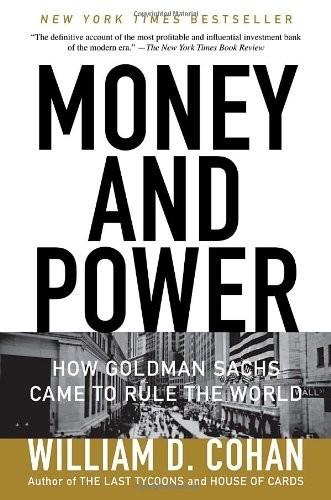
Money and Power: How Goldman Sachs Came to Rule the World
by
William D. Cohan
Published 11 Apr 2011
He made no mention of Whitehead’s role as finance co-chairman of the RNC, in which he raised millions of dollars for the president’s party. On July 8, by unanimous voice vote, Whitehead was confirmed as deputy secretary of state. His tenure at Goldman Sachs was officially over. He returned his book advance to McGraw-Hill. He never finished the book he set out to write about how corporations do well by doing good. CHAPTER 10 GOLDMAN SAKE Very little changed at Goldman following Whitehead’s retirement. “If anything did, I don’t know what it would have been,” Doty said. “John Weinberg continued in there. And he was placing more reliance on Rubin and Friedman.” One of Weinberg’s first decisions as sole head of Goldman was to take Rubin and Friedman out of their comfort zones—Rubin had been head of the firm’s trading and arbitrage businesses (with the additional responsibility for J.
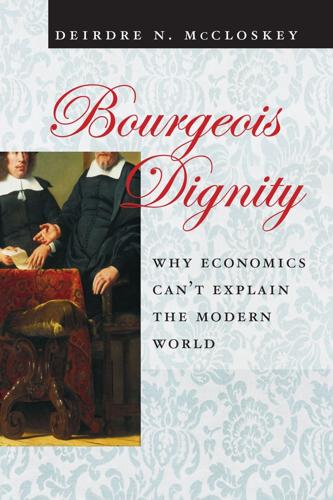
Bourgeois Dignity: Why Economics Can't Explain the Modern World
by
Deirdre N. McCloskey
Published 15 Nov 2011
(An economist notes that the distinction is meaningless, since the long run is a sequence of short runs, but no matter.) Franklin speaks of his friend William Coleman, “then a merchant’s clerk, about my age, who had the coolest clearest head, the best heart, and the exactest morals, of almost any man I ever met with. He became afterwards a merchant of great note, and one of our provincial judges.”14 Doing well by doing good. But note that the tests Franklin here applies would be agreeable to Smith’s impartial spectator or his encomium to the merchant of Glasgow, extending beyond mere short-run worldly success—yet (quoth Ben) not inconsistent with it, either. The prudence-only reading is not entirely unjustified by the text of the Autobiography.